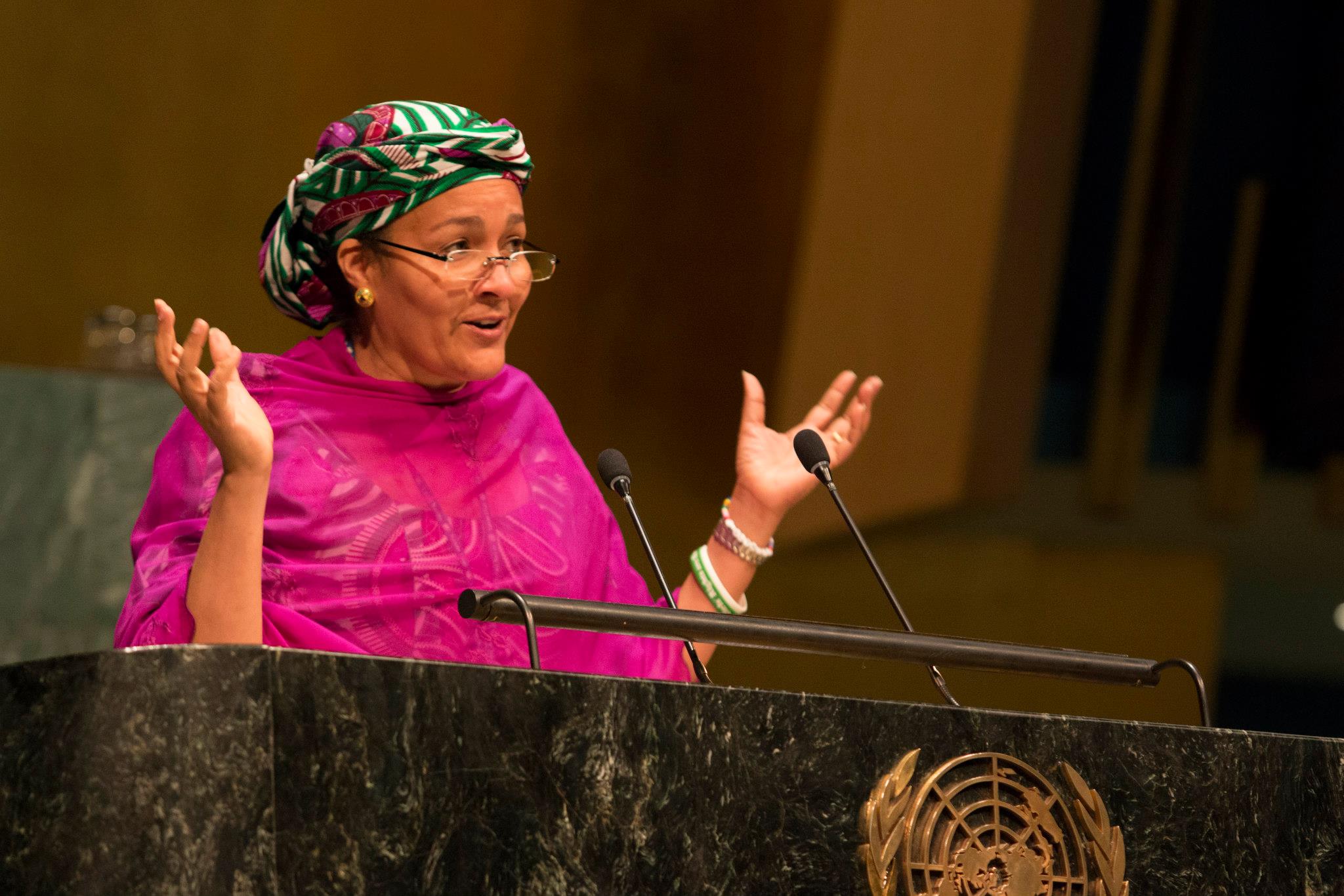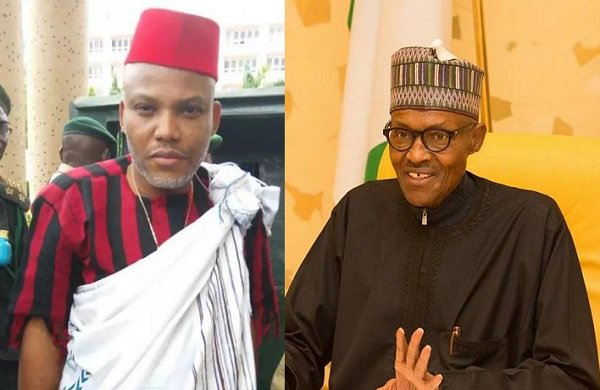By Yusuf Msheliza
I know the United Nations Organization (UN) as a serious-minded umbrella body and assemblage of nations of the world in the pursuit of common good for humanity across the globe. It has been visible, especially in times of armed conflicts of global dimension affecting member-states. And anywhere the UN berths its shadows, it is accorded veneration and its standpoint held sacrosanct.
But I was bewildered when a report credited to an arm of the UN with the caption, “UN counters Nigerian govt, says three Borno LGAs cut off by Boko Haram,’ published mainly by online media, failed to meet the minimum basics of an official reportage or assessment from such an august body. Infuriatingly, while it lacked substance conspicuously, it summed up on the security situation in the Northeast, with a damning verdict on the Nigerian Government and implicatively, efforts of the military on the counter-insurgency operations in the country.
The publications were lifted from the United Nations’ Office for the Coordination of Humanitarian Aids’s (UNOCHA) monthly report for September 2017, titled, “North-East Nigeria: Humanitarian Situation Update.”
A report purportedly issued by (UNOCHA) claimed Boko Haram insurgents still retain threatening presence and in control of three Local Government Areas (LGAs) in Nigeria and by inference, the Northeast. Strikingly, the claims by UNOCHA came shortly after the military command in Nigeria’s Northeast proclaimed that no part of Borno state was under the captivity or control of the extremist sect, Boko Haram insurgents. The UNOCHA set out to counter this claim, but postured badly.
There is no need to run hasty conclusions on the falsehood or veracity of the patently offensive report attributed to UNOCHA. A dissection of it would reveal the snags and otherwise, thus, test the grounds of the claims by this world body.
Nigerians and the world at large are fully aware of the near untamable rage and tempo of Boko Haram Terrorism (BHT) particularly in the Northeast before May 2015, when Nigerians opted for change of leadership by massively voting President Muhammadu Buhari (PMB).
A report by Sunday Trust newspaper edition of January 4th , 2015, published 41 days to the commencement of the first batch of the 2015 general elections comes handy. It divulged that despite the campaign-induced efforts to recapture swathes of territories annexed by insurgents, Boko Haram Terrorists (BHTs) were still in control of at least 13 LGAs in Borno, Yobe and Adamawa states in Nigeria’s Northeast. The insurgents are also declared these LGAs their sovereign “Islamic Caliphate.”
The report also indicated that nine out of the estimated 13 LGAs under the jurisdiction of terrorists were from Borno state alone. It also intimated that the extent of insurgents Islamisation of the captured territories reached a crescendo when Boko Haram leader, Abubakar Shekau, audaciously declared Gwoza, a town in southern Borno as headquarters of this “Islamic Caliphate.”
The report identified insurgents annexed LGAs in Borno State as “Gwoza, Bama, Mafa, Dikwa, Kala-Balge, Ngala, Marte, Abadam and Mobbar. The other four are Michika and Madagali in Adamawa State, as well as Gujba and Gulani in Yobe State.”
Furthermore, the report also specified insurgents partial control of other LGAs in Borno, such as “ Mungono, Kukawa, Guzamala, Gubio, Magumeri, Damboa, konduga, Chibok, Askira Uba and Jere.” No doubt, with attention of government at that time focused on the general elections, insurgents gained more stronghold on these local governments, intensified their atrocities and freely donated pains and sorrows to victims.
This was the extent of the precarious insecurity situation President Buhari met on assumption of office and proceeded to reshuffle the military top hierarchy. He appointed the very gallant Lt. Gen. Tukur Yusufu Buratai , as Chief of Army Staff (COAS) and leader of the counter-insurgency campaigns, with a specific instruction to defeat terrorism in Nigeria within the shortest time. And since the Northeast proved indisputably as the hub of BHT, Gen. Buratai mobilized and marched his troops to the battlefield.
A few months later, Boko Haram insurgents suffered decimation and captured territories were reclaimed by troops. By December 2016, the terrorists had been defeated with the capture and demystification of the dreaded Sambisa forest. The military thereafter hosted a drilling exercise to show its strength from the terrorists’ last territory which I participated as not to be told by anyone else.
Now, I do not consider these narratives as mere tales, because they have significance on the overall assessment of the success of the counter-insurgency operations in Nigeria today, as revisited by UNOCHA. We do know that the fall of Sambisa shattered the cohesion and scattered terrorists to an irrecoverable degree of destabilization.
Many insurgents, including Boko Haram top commanders voluntarily threw in the gauntlet in surrender to the Nigerian Army. But it is also an established fact that remnants of terrorists took refuge in remote villages and communities as well as neighboring countries, where they recuperate, regroup and re-energize to launch occasional attacks on soft and obscure targets on some communities in the Northeast.
The relocation of the headships of the military and other arms of security to the Northeast is for the final cleansing and extinction of Boko Haram terrorism from the shores of Nigeria. And I can attest that tremendous impacts have been recorded as the tempo of these occasional suicide bomb attacks has dwindled immensely.
Therefore, the UNOCHA report insinuating severance of three LGAs in Borno because of the inferred “overwhelming” presence of BHTs tasked my sense of judgment endlessly. Moreso, its likely tendency or plot to rubbish and dampen the morale of Nigerian troops at the battlefront, necessitated the crafting of this response to it.
And again and again, I picked loopholes and frowned at the unpardonable absence of a professional touch on the facts of the report, mainly from the source of the news. Firstly, the report declined identification of the LGAs which are purportedly inaccessible by UNOCHA.
This if properly put in perspective could help the military to revisit such areas if any exist in its mop-up operations to sanitize the communities.
In addition, I consider it vile propaganda to merely hold unto the straw of the inaccessibility of the local areas by aid workers to assist victims as triggered by the presence of insurgents and so, UNOCHA had to say “Most roads to the south, south-west and east remain unusable due to security concerns and most humanitarian personnel movement is done through air assets.”
It may please UNOCHA to understand that Nigeria is a developing nation and most of her rural communities are inaccessible by roads. The terrain and topography of the north-east even make matter worst when compared to other parts of the country. There exist only footpaths and that’s why the Nigerian Army adopted the motorbike usage by soldiers for rapid response to terrorists’ signals.
What I deciphered from the report is that UNOCHA’s aid workers have been stung by the bug of phobia, which is natural, hence they are not soldiers trained to withstand adverse conditions. This can be gleaned from a portion of the report which reads in part;
“Insecurity, presence of mines, improvised explosive devices, and unexploded ordinances had continued to slow down the response of humanitarian agencies in Borno, Yobe and Adamawa states”
The fear of the possible encounter by aid workers with explosive devices is what they have attributed to insecurity and yet, they admitted at some point that “Cargo, however, is being transported via road with armed escorts as a last resort.”
This is just imaginative fear of the unknown. But does anybody expect to navigate any terrain in the Northeast now without armed escorts? This is certainly impossible! But UNOCHA did not disclose any attack on their team by terrorists. It does not mean when teams, including military convoys rummage the area into the hinterland with escorts, they are immune from attacks by terrorists.
So, this outing robs off negatively on the image of UN, a world respected body. I strongly suspect they are either hoodwinked or opted for a conspiracy with local authorities in Borno, especially politicians. I have known since last year, that some politicians in the area offer secret prayers fervently that the Boko Harm terrorism should never end.
These politicians have probably embezzled funds or mismanaged same from these local governments and declaring the insurgency as ended business would expose them to probe. So, they have contrived all manner of games in the desperation to veil the truth about prevalence of terrorism to shield themselves from probity. And perhaps, the UN officials were tricked into this game.
It’s unfortunate that the UNOCHA has pandered to the gimmicks of local authorities in the Northeast. But it is advisable for the UNOCHA to stick its humanitarian roles and restrain from dabbling into the local politics of the Northeast. It should steer clear of local politics and concentrate only on its approved humanitarian roles acknowledged world-wide.
If the UN has run short of funds to keep buying foodstuffs in aid of victims of Boko Haram terrorism, in Nigeria’s Northeast, it is not enough reason to connive with local authorities to publish lies on the festering of terrorism to cause unnecessary panic in the minds of the people and to halt efforts geared towards rebuilding these reclaimed communities. It has exposed itself to ridicule with a report too overtly steeped more in fiction, than reality.
Msheliza, an anti-terrorism crusader wrote from Maiduguri.



